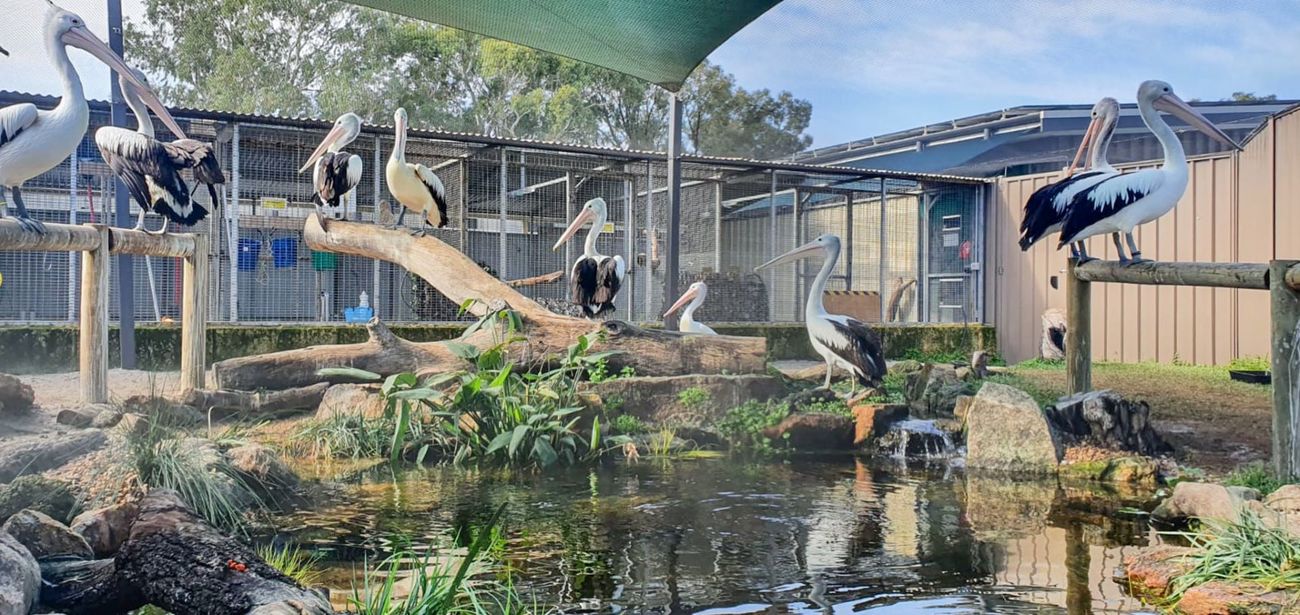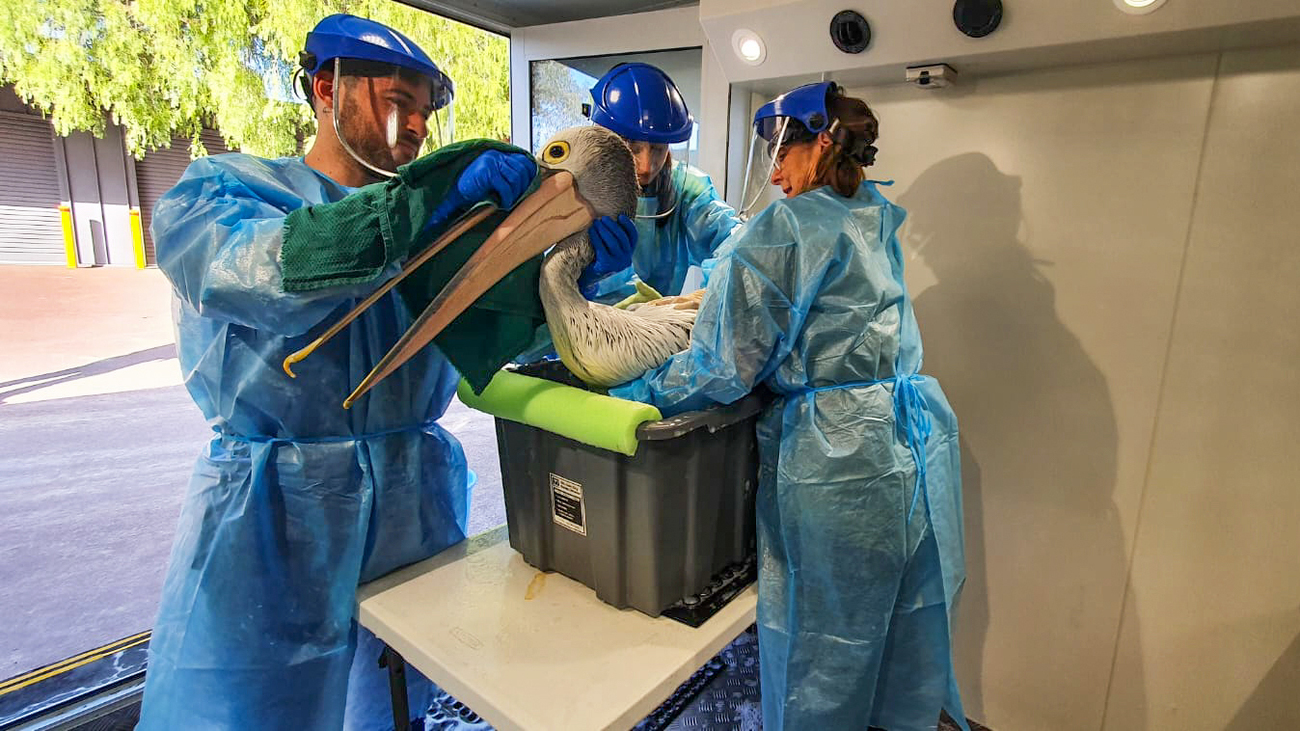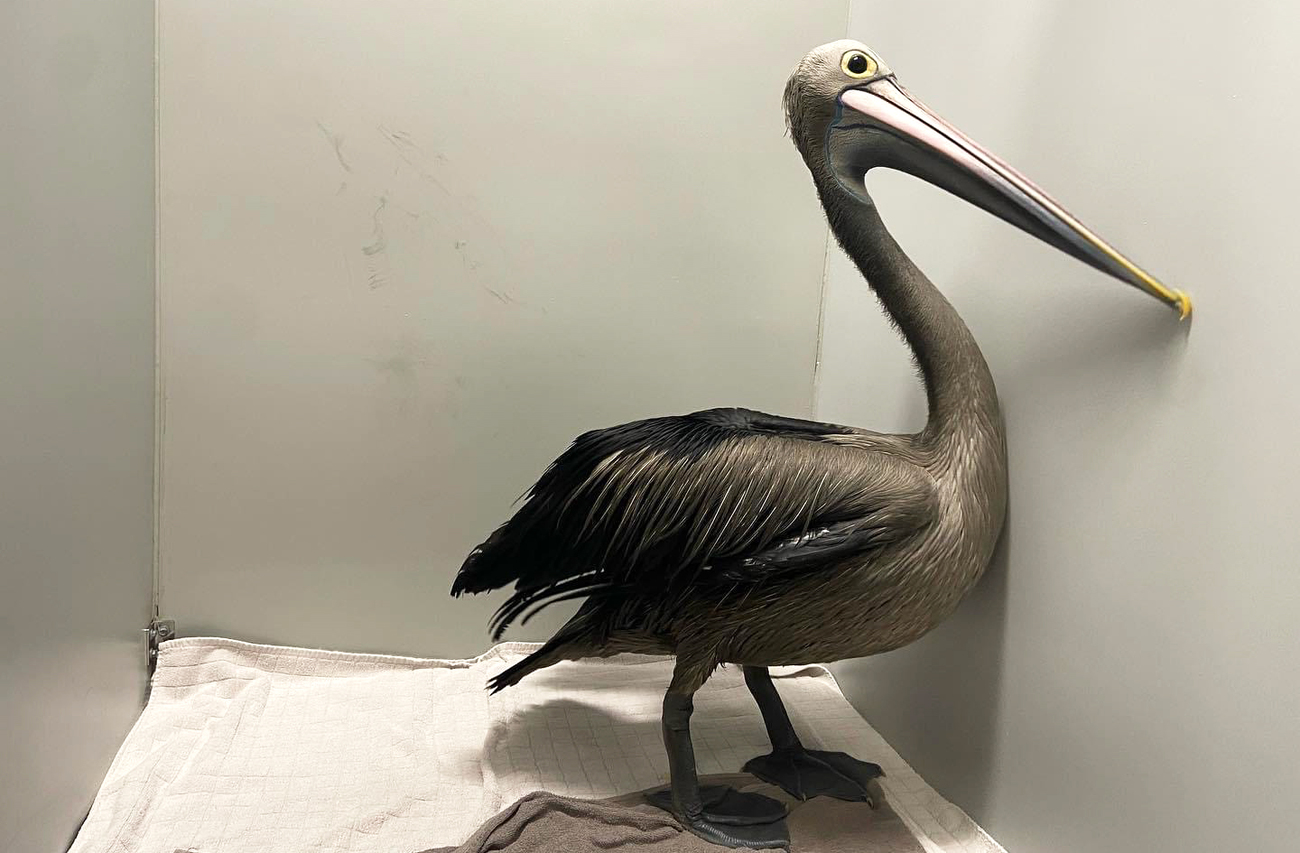IFAW deploys rescue officer and aid to oil spill in Australia
IFAW deploys rescue officer and aid to oil spill in Australia
The first pelicans affected by the oil spill have now been released. This group of sentinel pelicans have been fitted with GPS tracking devices to monitor their movements and narrow down the source of the spill should they return re-contaminated to our partners at WA Wildlife.
Despite efforts from authorities, the source of the oil spill is still unknown, and it is possible that it has now dissipated.
We’d like to acknowledge the incredible efforts of those at WA Seabird Rescue who are leading the rescue and release of these birds, continue to monitor them, and remain on standby for more pelican rescues.
We will continue to update this page with any developments.

Pelican clean-up continues
July 28, 2023
The IFAW-supported team at WA Wildlife Hospital has been busy on the ground cleaning the pelicans and working to ensure they regain their waterproofing, so they can fly again.
Since the first pelican arrived at WA Wildlife Hospital, the team has:
· Completed more than 60 pelican washes. One wash takes approximately 1.5 hours and requires four volunteers.
· Used 200 litres of water for each pelican wash and rinse.
· Used more than 46 litres of cleaning solution.
· Spent three hours per bird per day on feeding, fluids, and cleaning.
As of July 28, the hospital has 33 pelicans in care, with 10 on track to be released.
But with the cause of the spill still unknown, there are concerns about safely releasing the rehabilitated pelicans without putting them back in harm’s way.
IFAW and WA Wildlife Hospital continue to urge authorities to find the source of the spill that has put so many birds at risk.

IFAW Animal Rescue Officer deployed to Australia to save pelicans
July 19, 2023
IFAW Animal Rescue Officer Robert Leach is on the ground helping our partners WA Wildlife respond to the oil spill impacting pelicans.
The team has been caring for more than 30 pelicans. Washing the oil off these large birds is laborious. It can take up to an hour for each pelican with several people cleaning them. The pelicans need three washes—sometimes more—for all the oil to be removed and ongoing monitoring to ensure they are able to waterproof themselves again.
Because of the quick action taken by rescue teams, 30 out of the 32 pelicans under the expert care of the IFAW-supported team are on track to be released.
“It takes a village to respond to an incident like this and rehabilitate all the animals impacted,” Robert said. “It’s our hope that together we can release as many pelicans as possible back into the wild.”
IFAW is also hosting a webinar with a seabird and oiled wildlife response expert to share insights and information with key stakeholders responding to this incident. We also have an expert wildlife veterinarian on standby to deploy to the veterinary hospital, in anticipation of a further influx of rescued pelicans.

IFAW's response to the oil spill in Western Australia
July 13, 2023
Seabirds are facing the effects of a recent oil spill in Western Australia. Dozens of pelicans are drenched in oil and in need of rescue. Authorities are investigating the cause of the spill.
In response, IFAW is deploying Animal Rescue Officer Robert Leach to help our partner WA Wildlife treat and manage the influx of pelicans coming into their care. The rescue centre and hospital are at capacity, with 30 pelicans currently needing treatment and more likely to be rescued in the coming weeks.
IFAW is also providing emergency relief for additional veterinary staff and an incident coordinator to help WA Wildlife respond to the spill.
Rescue teams are finding pelicans drenched in oil and severely distressed. As a result, they’re at risk of becoming waterlogged, which would be detrimental to their health. Oil toxins can destroy the natural waterproofing in their feathers and cause them to succumb to hypothermia.
We are in contact with additional organisations in Western Australia and will update this page as our response work continues.
Related content
Every problem has a solution, every solution needs support.
The problems we face are urgent, complicated, and resistant to change. Real solutions demand creativity, hard work, and involvement from people like you.